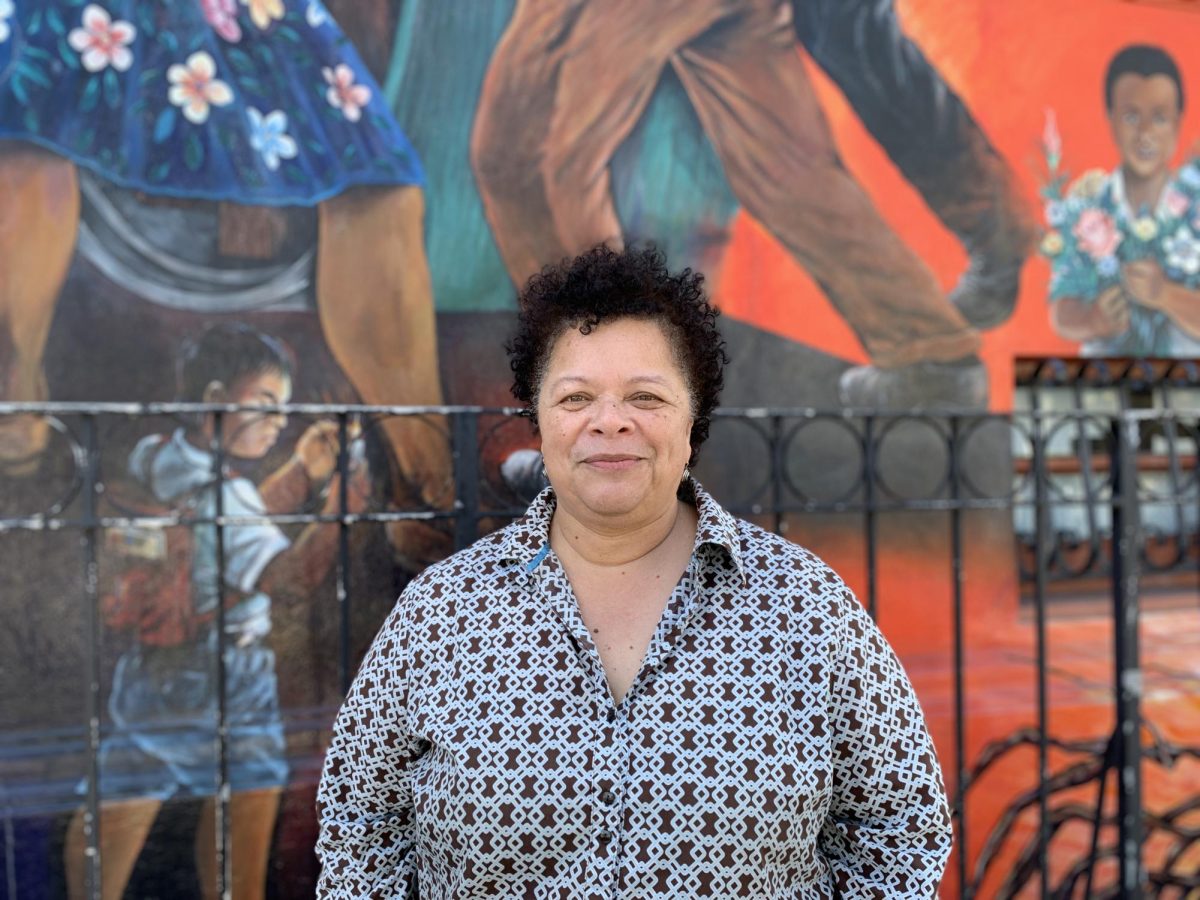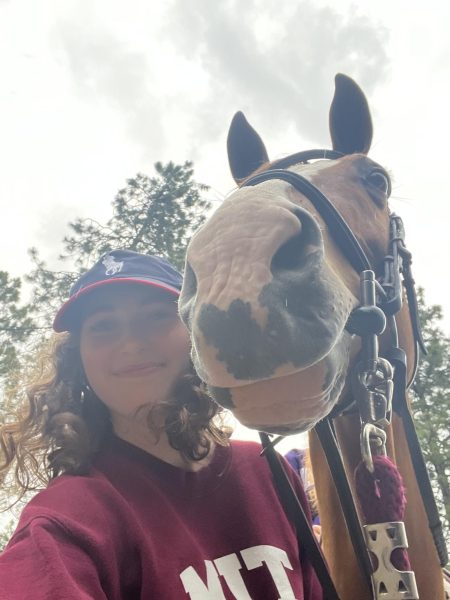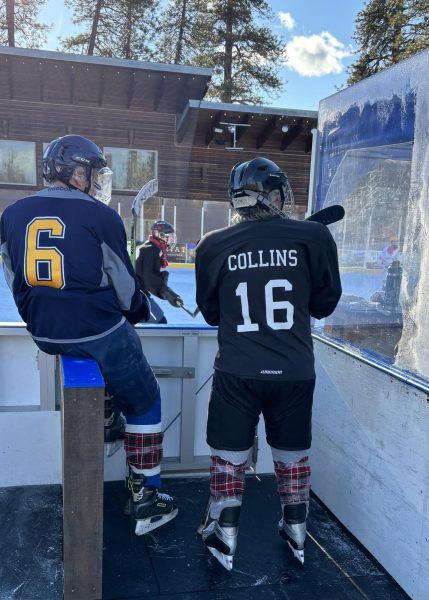Lakeside history teacher Nancy Rawles has had personal experience with bullying and harassment at her own high school decades ago. In this interview, she speaks to those experiences and relates them to this fall’s events, namely the expulsion of an upper school student and the harassment that led to that point.
This interview has been edited for clarity and concision.
Lorelei S. ’25 (LS): I’d love to start by hearing about your own experience as it pertains to recent events.
Nancy Rawles (NR): I was severely bullied when I was a 10th grader, and the experience at Lakeside brought it all back into very sharp focus, which was really difficult for me. These kinds of things are ones that you put out of your mind and you just keep going, and then to experience how strongly it came back after decades was really shocking to me. I went to a small all-girls Catholic high school in LA, and there was a group of bullies at that school. There were six of them. I would say three of them were the hardcore, let’s-make-people-miserable type, and the other three were the followers. The former were privileged, blonde LA girls. When I was in the sophomore class, they were juniors, and I witnessed them surround a particularly vulnerable freshman. They were white and she was white. She was over by a staircase, and they surrounded her and started yelling at her, and she was crouched down in fear. They left her there, and I went over and I talked to her, and I told her that I thought what they had done was really horrible.
I didn’t tell anybody what I had seen. And I later heard about things that they would actually do in classes with people, where they would also target the unpopular kids in the class, passing them threatening notes. I was someone who was popular and had a lot of friends and connections, and they left me alone. But I had witnessed this, and I hadn’t said anything. Well, they got bolder and bolder, because they were getting away with it, and started targeting the sophomores. The sophomore class was one-third Black girls, and there was a certain cohesiveness among the Black girls, because for the most part, we all lived in the same general area of the city, and maybe we went to church together, or maybe there was some other family or friend or community connection. So once these six bullies started targeting the Black girls in the sophomore class, people started fighting back.
A couple of Black girls were heroes for a day or two. The bullies had pushed one of them into a locker. They had gotten bolder about these acts of physical violence. Now these kids who’d fought back were in the principal’s office being threatened with suspension. When I found out, I went to the principal and said, look, the reason why those kids were fighting is because of these juniors, who have been bullying everybody. I went in and snitched, as people would say nowadays. I don’t think of it as snitching. I think of it as standing up. So she investigated, just as, I guess, Lakeside is investigating, and she decided to kick out the white girls, the three leaders. People were really afraid of them. They were from powerful families. Everybody was shocked that these girls got kicked out. It was just unheard of that people with that kind of power would actually have to face any kind of punishment like that.
After they were kicked out, there were still the three left who were their friends, their followers, and those three knew that I was the person who had told on their friends, so they and their boyfriends began to harass me. The racial slurs were really the least of it. There were a lot of threats of violence. I might be coming out of school, out of the back of the building, and then they would be waiting for me in their cars with their boyfriends. They’d zoom by in a very threatening way, and call me names and make threats of sexual violence.
I didn’t tell anybody. My parents and siblings never knew. Even the kids at school didn’t really know. Later, at the end of my junior year, I ran for student body president and won. Afterwards, these girls trashed the school, overturning tables and throwing chairs and doing all kinds of things that led people to understand, because a lot of the bullying had been underhanded, that there was a price to be paid, so to speak.
LS: Was there any sort of resolution to that? The girls, I assume, never got in any trouble.
NR: No, because they were graduating. Everybody was just glad to see the back of them. I’d like to give them the benefit of the doubt and just say there’s something wrong with them, and they’re insecure, or whatever. But I think a lot of it is just that they could get away with it, and the more they get away with, the more they do, and the more that people are afraid of them. That’s a kind of power. We see this kind of behavior all the time. It’s that type of intimidation, stalking, targeting, and it really is horrible, no matter who does it to whom.
If you’re talking about young women being harassed, if you’re talking about people of color being harassed, there’s a devastating history and current reality around that. But I would also like to see some really public clarity that this is not okay to do to anyone ever. It has to be clear to the student body, and to everyone on campus, that the issue [in the Lakeside expulsion case] was the harassment, the bullying, and the fact of it happening over a long period, with multiple instances of targeting. I’m glad Lakeside does not tolerate racial targeting. I want to hear that Lakeside doesn’t tolerate targeting and harassment and bullying, period.
LS: In your opinion, what is the work that needs to be done to reframe this incident like in the minds of the Lakeside community, of students and faculty?
NR: The level of impact and the corrosive effect upon the community are crucial. If it’s ongoing, if there’s widespread knowledge and participation, it’s something that cannot be treated as isolated. But with harm, sometimes you’ll hear people say, “Intention is not important. It’s really impact.” I don’t agree with that. Intention is really important, though it’s often hard to prove in these kinds of cases that I’m talking about. Harassment and the kinds of things you can be brought up on charges for — you cannot actually do them without intention. The intention is part of what makes them so bad. You intend to hurt, threaten, and intimidate somebody. You have power over others. It’s on a level beyond something you said or did that you shouldn’t have, that you feel very sorry about and you are intent upon not doing again. To me, those two things shouldn’t even be in the same sentence when we’re talking about harm. They’re so far apart on the scale of what it means to truly, irrevocably harm someone and harm a community because of your intentional actions, where you knew exactly what you were doing.
I don’t subscribe to the idea of “Oh, they didn’t mean it.” Sometimes they mean it. I don’t think you can be a history teacher or know anything about history and think people don’t mean to do things. It would be impossible to have the history and the present that we have if people were not meaning to hurt other people. I really don’t know what percentage of what happens at Lakeside in terms of cruelty is meant and what isn’t meant, but that’s the point. Being cruel is substantially different from making a misstep. One can land you in court, the other one can lose you a friend. You don’t want to lose a friend, not if you’re a kind person. You definitely don’t want to wind up in court, unless you’re somebody who doesn’t care about people and who thinks you have so much power that nobody can touch you.



